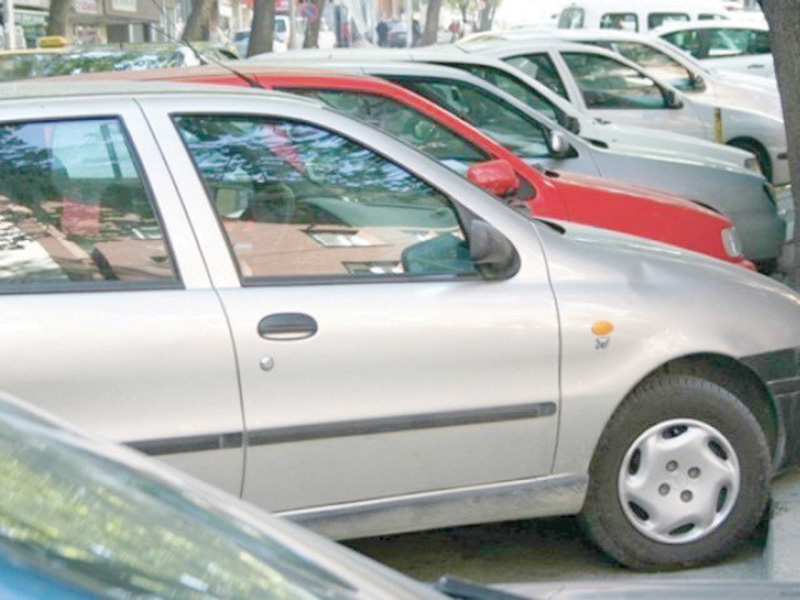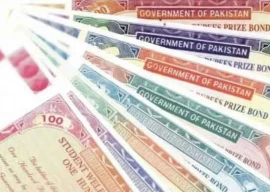
Differences between two key ministers are apparently standing in the way of approval of the proposed new auto policy that has been designed to break the monopoly of existing players and encourage fresh investment in the industry.
Water and Power Minister Khawaja Asif and Finance Minister Ishaq Dar were not on the same page in a meeting of the Economic Coordination Committee (ECC) held on August 12 that had the auto policy on the agenda.
During deliberations, Asif made all efforts to persuade Dar to give the go-ahead to the new auto policy, stressing that nothing had been left untouched in drafting the document. However, Dar, who is also the ECC chairman, looked unconvinced and turned down the request.
Asif is heading the committee that has worked for two years to come up with a draft of the auto policy. It seems that Industries and Production Minister Ghulam Murtaza Khan Jatoi had also not been taken into confidence as he was not engaged in the entire discussion held on the policy in the ECC meeting.
Apart from the finance minister, Federal Board of Revenue (FBR) Chairman Tariq Bajwa also opposed the auto policy, arguing there were no incentives to woo new investors.
During the huddle, Industries Secretary Arif Azim gave a presentation and outlined different categories of investors with major incentives to be offered to them. However, the FBR chairman countered that the incentives were not adequate enough to stimulate fresh capital injection.
Replying to a query from the ECC chairman about the deletion programme under the proposed automotive development policy, the industries secretary acknowledged that the plan had no explicit provision for the deletion programme, which, it said, was not consistent with the World Trade Organisation (WTO) framework.
However, he said, the objective of the deletion programme would be achieved indirectly through building tariff walls.
Water and Power Minister Khawaja Asif responded that Privatisation Commission Chairman Mohammad Zubair and Board of Investment Chairman Miftah Ismail had been closely involved in the consultation process and nothing had been left untouched in the last two years of consultation. “The consultation process was extensive and no stakeholder was left out,” he remarked.
The law, justice and human rights secretary asked whether all legal aspects had been considered while formulating the policy.
The ECC chairman told the law secretary to look at the legal provisions and report its findings to the committee.
He also directed the secretaries of industries, revenue division and commerce division to review different issues and the automotive development plan in the next two weeks. He suggested that the draft plan should be made public to invite their feedback.
The ECC had constituted a committee on October 2, 2013 comprising the minister of water and power, then Board of Investment chairman, industries secretary, FBR chairman and Engineering Development Board CEO to finalise the draft of the automotive development policy for 2015-20 and submit it to the ECC.
The committee held deliberations and consulted the stakeholders to understand the core issues and conflict of interests influencing the development and growth of the automotive sector.
To achieve the policy objectives, the body proposed easing the entry condition for new investors, putting in place an enabling structure for development of the industry and rationalising the auto import policy.
It also called for establishing regulatory and enforcement mechanisms for quality, safety and environmental standards and setting up the Pakistan Automotive Institute. Measures to ensure consumer welfare through the provision of quality vehicles with safety features were also part of the proposals.
Published in The Express Tribune, August 20th, 2015.
Like Business on Facebook, follow @TribuneBiz on Twitter to stay informed and join in the conversation.

1730360426-0/Menendez-Brothers-(2)1730360426-0-165x106.webp)
1732534556-0/taylor-(14)1732534556-0-165x106.webp)
1725872216-0/Tribune-Pic-(3)1725872216-0-165x106.webp)
1732532771-0/BeFunky-collage-(89)1732532771-0-165x106.webp)



1732486769-0/image-(8)1732486769-0-270x192.webp)








COMMENTS (6)
Comments are moderated and generally will be posted if they are on-topic and not abusive.
For more information, please see our Comments FAQ